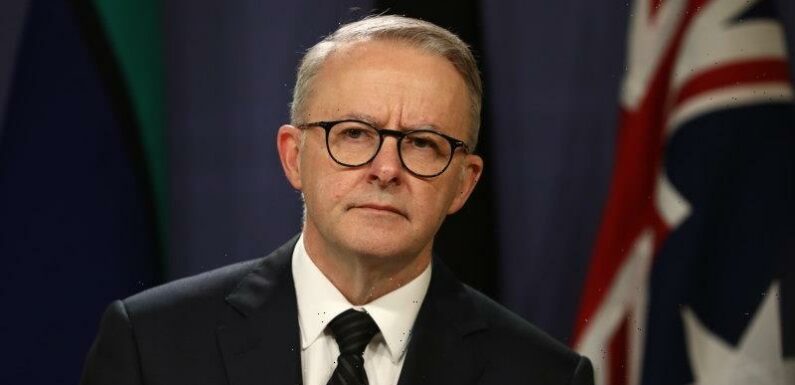
There is a simple way for a prime minister to break an election promise: ask for permission.
John Howard did this in 1998 when he went to the federal election with a plan for a goods and sales tax despite promising at the 1996 election he would never have one.
Prime Minister Anthony Albanese.Credit:Dominic Lorrimer
Howard led the Coalition to victory and had a mandate for an intensely controversial tax that most economists now consider good policy.
The history lesson for Anthony Albanese is there for all to see. If the prime minister believes the stage three tax cuts have to change, and that he must break his election promise for the good of the budget and the country, he has to be brave enough to put it to the people.
Albanese and the Treasurer, Jim Chalmers, would have to go to voters with a compelling argument about why the cuts at the top end of the income scale should be stopped or reduced.
The timing of stage three does not make this easy because the cuts begin in July 2024 and the next election could be held as late as May 2025. This is not an argument for an early election (a standard half-Senate election cannot be held before August 2024 and there is no trigger for a double dissolution) but the nightmare timing is Labor’s own fault.
Albanese and Chalmers boarded the train for the stage three tax cuts at the May election and are in no position to complain about the journey.
The comparison with the GST debate fails on one key point. Howard did not have to amend an existing package. Could Albanese allow the tax cuts to start in July 2024 and go to an election only months afterwards with a proposal to scale them back? It would be messy but not impossible. It would at least be honest.
No political leader gets a leave pass for breaking an election pledge. Paul Keating did not get one when he dropped the tax cuts he promised at the 1993 election, Julia Gillard did not get one over her “no carbon tax” promise in 2010 and Tony Abbott did not get one when he broke his 2013 pledge to spare health and education (and more) from spending cuts.
The debate over the past week is not a reliable guide to how the politics would play out. The argument about stage three has been fairly low-level in recent days, spoken about by politicians, journalists and economists but barely heard by most voters. The left is convincing itself it will be safe to break the election pledge.
But the argument could be ear-splitting by July 2024 if households lose money because of a broken promise. The cuts go to about 10 million workers – although, yes, they are more generous to those on higher incomes because, after all, those on higher incomes pay more tax. The cuts return some of the additional tax many will pay from bracket creep – a big factor when inflation is pushing nominal incomes into higher tax brackets when real wages are falling. Some of these “wealthy” voters are skilled workers on $150,000 or even $200,000 in seats the Labor Party needs to win.
This is not a simple scenario where Labor can play to its base. After all, its base is only 77 out of 151 seats. Labor needs to win voters from the Liberals to be safe.
What happened here is no mystery and no cause for sympathy. Labor was wedged at the last election and has to live with the consequences. The Liberals designed a tax package to help workers on higher incomes and Albanese and Chalmers chose to support the package rather than risk an election fight.
There is a chance, of course, that Albanese could wedge the Liberals in return. A Labor proposal to stop the tax cuts at a high threshold could leave Opposition Leader Peter Dutton fighting for the rights of the millionaires at the next election. But Albanese could only force this choice by putting an alternative plan to the people.
Howard lost 14 seats in 1998. Albanese has no seats to spare. This is a hard journey, no question. But it is too late to catch a different train.
Cut through the noise of federal politics with news, views and expert analysis from Jacqueline Maley. Subscribers can sign up to our weekly Inside Politics newsletter here.
Most Viewed in Politics
From our partners
Source: Read Full Article
